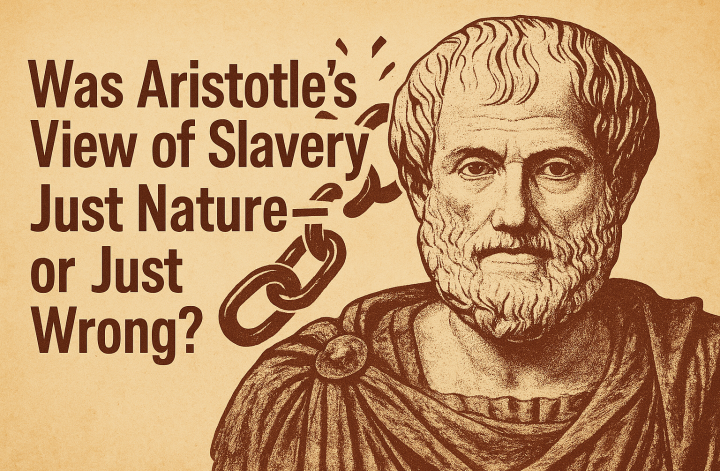I chatted with a Pastor friend on the blog entry about Jesus being sent only to the lost sheep of Israel. Among other things, my Pastor friend believes such a claim implies a few discordant things:
- Gentiles are “an afterthought.”
- Jesus is the Savior of only the Jews, and many Jews did not even accept him.
- Gentiles today should be practicing Judaism, not Christianity.
I am sympathetic to him and others who would feel that way. I had similar thoughts and discomfort when I was first confronted with these issues some years ago. However, I do not think the picture is as bleak or fuzzy as my friend may appear to imply. Let’s unpack the points one after the other.
First, I must reiterate that I did not claim that Jesus was only sent to the Jews in the first century. The Matthean Jesus did. In his own words, Jesus understood his mission as primarily to first-century Jews. So, even if a reader dislikes my explanation, the text remains and confronts us:
Matthew 15:24 ESV
[Jesus] answered, “I was sent only to the lost sheep of the house of Israel.”
Second, as repeatedly stressed in the more extended blog entry, the fact that Jesus was only sent to the Jews does not have to mean he was only for the Jews. That we even think that way betrays our ignorance of biblical theology. For the umpteenth time, God called Abraham to solve the Adam problem. And Adam, well, is the source of all humanity in Genesis. In other words, God used a specific lineage of Adam to solve the problem of all lineages. So, when God called Abraham, he always had Gentiles in mind. They are not an afterthought.
Third, since God sovereignly determined that He would solve the Adam problem through Abraham (Genesis 12:3), the ultimate seed of which Isaac was only a type, the ultimate solution, must come from Abraham’s line. That is the BLESSING that God closely protected in Genesis. When Abraham tried to help God out by impregnating Hagar, God told him Ishmael was not it. The promised son was yet to come. Eventually, Isaac came. And from Isaac, the blessing was passed to Jacob, then to Judah, Perez, Hezron, Ram, Amminadab, Nahshon, Salmon, Boaz, Jesse, David, Solomon, Rehoboam, Abijah, Asaph, Jehoshaphat, Joram, …Jesus. This is why Biblical authors often take the pain to give us genealogies. Genealogies are not merely sedatives or boredom pills to swallow in church services. Jesus could not have been anything else but a Jew. To be anything else is to abandon the Abraham Project.
Fourth, notice that Jesus being a Jew with a mission to other Jews does not mean he was for Jews only. (Actually, Jesus, being so kind, often did not stick to the script and addressed the needs of non-Jews even while saying he was sent to the Jews.) In a Biblical sense, Jesus was like the nuclear reactor of the Abraham Project, which badly needed a nuclear equivalent of CPR. If the Abraham Project could be successfully resuscitated and allowed to go to its intended completion, then the Adam problem would have been addressed. Jesus could not be the Savior of the world if he were not the Savior of the Jews first. Even a Roman Jew knew this fact:
Romans 1:16 ESV
For I am not ashamed of the gospel, for it is the power of God for salvation to everyone who believes, to the Jew first and also to the Greek.
The salvation Jesus offered had to be for the Jews first before it could be for the Gentiles. The blessing must flow outwards from Abraham’s bosom. As the blog entry states, this fact is vividly portrayed in the book of Acts, which was written by a Gentile. Nobody seemed offended by this fact in the first century.
Now, does that mean Gentiles are an afterthought? If they are an afterthought, they became that when God chose Abraham, not when Jesus put on a body. The appearance of Jesus is according to God’s divine will, and that is the way God intended it. Jesus’ mission was to the Jews. Nevertheless, the result of the mission was such that there could no longer be “Jews or Gentiles.” That distinction is meaningless once the Abraham Problem is solved.
My Pastor friend made an observation, but didn’t seem to appreciate the implications. The fact that most Jews of the first century did not accept Jesus as their Messiah, a black hole-sized problem that precipitated the writing of the book of Romans, especially chapters 9-11, but that the program continued, indicates that Jesus was not sent to the Jews merely for the Jews. The Jews, like Abraham, were a means to an end, but an end they may elect to participate in. It was never really merely about the Jews or even Abraham. The problem is bigger, being Adam-sized. That’s the original problem to solve. Hence, God’s redemptive program moved on despite Jewish rejection.
Now, in light of the anti-Semitic history of the church, we must clarify a few things. There are many reasons why most Jews did not accept Jesus. One very huge reason is that the Rabbis shielded the people from the truth, and many then, like today, only believed what their religious leaders told them. Nevertheless, a good number of Jews believed. In Acts 2, about 3000 Jews accepted Jesus in one meeting. And, of course, all the Apostles of Jesus were Jews. Today, in Israel and all over the world, Jews continue to discover Jesus. When I hear the stories of faith of many of these Jews, a common theme emerges: they have been systematically lied to for 2000 years! Even more relevant is the fact that Gentiles often play critical roles in the faith journey of these Jews.
Finally, we must say something about my friend’s reasoning that Gentiles should be practicing Judaism if Jesus was only sent to the Jews. I find this very, very helpful. I cannot stress this enough: what we now call Christianity was a form of Judaism in the first century, and there were other forms, such as the Qumran/Essene, Pharisee, and Sadducee sects of Judaism. Furthermore, we may learn something relevant from Rabbinic Judaism, the orthodox form of Judaism that survived from the Pharisaic strand. In the first century, the temple was the heart of Judaism for the Pharisees (and Sadducees). After the Romans destroyed the temple in 70 AD, the heart of Pharisaic Judaism, one would expect that to be the end of Judaism. In a sense, it marked the end of a Judaism that focused on the temple. Nevertheless, a new form of Judaism emerged from the Pharisaic strand a few centuries later and remains prevalent today. It did not morph into a new “Judaism” just because some essential and even core elements of the older strands had to be rethought.
Also, recall that the term “Christian” was an outside label. It was a label people outside the group applied to the group. The followers of Jesus did not originate it. Being an accurate and helpful label, it stuck. But the Apostles did not think they stopped being religious Jews. The Apostle and early Jewish believers knew they had to rethink certain aspects of traditional Judaism in light of the Jesus event. Still, they didn’t consider the outcome of the rethinking anything but Judaism. If anything, it was realized Judaism. They believed the Torah, Prophets, and the Writings pointed to Jesus. Just as Rabbinic Judaism could lay claim to “Judaism” even without the temple, sacrificial systems, and priests, the Jewish Apostles of Jesus need not think that the resulting Jesus-inflected system is less than Judaism.
Indeed, even the resurrected Jesus thought similarly. On the famous road to Emmaus, some disciples were disheartened that Jesus was killed and that his dead body was missing after three days. Jesus appeared to them, disguised. To help them understand everything that has happened, we read:
Luke 24:25-27 ESV
[25] And he said to them, “O foolish ones, and slow of heart to believe all that the prophets have spoken! [26] Was it not necessary that the Christ should suffer these things and enter into his glory?” [27] And beginning with Moses and all the Prophets, he interpreted to them in all the Scriptures the things concerning himself.
Notice verse 27 in particular. To present the facts about himself to these disciples, Jesus relied on the Pentateuch, the Jewish prophets, and all the Jewish Scriptures to make the point. So, even the resurrected Jesus did not think Judaism had become obsolete. Some significant parts must be understood afresh, but the program continues. As I often say and now repeat, we have about precisely zero chance of faithfully understanding Jesus and his mission without the Hebrew Bible.
So, my friend is correct after all. Gentile believers in Jesus should all practice Judaism. But wait, they already do!





1 Comment